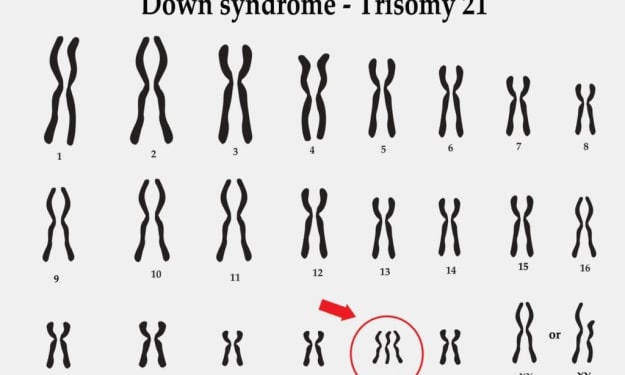Cracking the Code: Understanding the Science behind Why You Can't Lose Weight
There’s a science behind weight loss that goes beyond the surface level, and in this article, I’ll delve into the details of why you might be having a hard time shedding those extra pounds.

As a health and wellness enthusiast, I’ve encountered numerous individuals who struggle with losing weight despite trying various diets and exercise routines. It’s a common issue that affects people from different walks of life, and it’s often attributed to a lack of discipline or willpower. However, the truth is that losing weight is much more complex than simply eating less or hitting the gym more often. There’s a science behind weight loss that goes beyond the surface level, and in this article, I’ll delve into the details of why you might be having a hard time shedding those extra pounds.
Introduction to the Science behind Weight Loss
Before we dive into the specifics, it’s essential to understand the basics of weight loss. In simple terms, weight loss occurs when you burn more calories than you consume. This creates a calorie deficit, which forces your body to use stored fat as energy, resulting in weight loss. However, this process is not as straightforward as it may seem.
Understanding the Role of Metabolism in Weight Loss
Metabolism refers to the chemical processes that occur in your body to keep you alive and functioning. It’s responsible for breaking down the food you consume into energy, which your body uses to carry out its functions. Your metabolism rate determines the number of calories your body burns at rest, which is known as your basal metabolic rate (BMR).
A slower metabolism rate can make it challenging to lose weight, as your body burns fewer calories than it would if you had a faster metabolism. Factors such as age, gender, and genetics can affect your metabolism rate. However, there are ways to boost your metabolism, such as exercising regularly, increasing your protein intake, and staying hydrated.
The Importance of a Balanced Diet in Weight Loss
While exercise is crucial for weight loss, your diet plays an even more significant role. Consuming a balanced diet that includes whole foods such as fruits, vegetables, lean protein, and healthy fats can help you lose weight and maintain a healthy weight.
Eating a diet that’s high in processed foods and added sugars can inhibit weight loss and lead to other health issues such as diabetes and heart disease. It’s essential to monitor your calorie intake and ensure that you’re consuming the right types of foods. A Registered Dietitian can help tailor a diet plan that’s specific to your body’s needs and goals.
The Impact of Exercise on Weight Loss
Physical activity is an integral part of weight loss as it helps burn calories and build lean muscle mass. However, the type and intensity of exercise you engage in can affect your weight loss results.
A combination of cardio and strength training is ideal for weight loss, as it helps burn calories and build muscle mass. High-intensity interval training (HIIT) is also effective in burning calories and boosting your metabolism. However, it’s essential to listen to your body and not overdo it, as this can lead to injury and burnout.
Hormones and Weight Loss - The Science behind Insulin and Cortisol
Hormones play a significant role in weight loss and can make it challenging to shed extra pounds if they’re imbalanced. Insulin is a hormone that regulates blood sugar levels and helps your body store fat. High levels of insulin can inhibit weight loss and lead to insulin resistance, a condition that can increase the risk of diabetes and other health issues.
Cortisol is another hormone that affects weight loss. It’s often referred to as the stress hormone and is released in response to stress. High levels of cortisol can lead to weight gain, particularly in the abdominal area. It’s essential to manage stress levels through techniques such as mindfulness, meditation, and exercise.
The Role of Genetics in Weight Loss
Genetics can play a role in weight loss, as certain genes can affect your metabolism, appetite, and insulin sensitivity. However, it’s important to note that genetics are not the sole determinant of your weight. Lifestyle factors such as diet and exercise habits can override genetic predispositions.
Myths and Misconceptions about Weight Loss
There are numerous myths and misconceptions about weight loss that can hinder your progress. Some of these include:
Spot reduction: Targeting specific areas of the body to lose weight, such as doing crunches to lose belly fat, is not effective. Weight loss occurs throughout the body and cannot be targeted to specific areas.
Fad diets: Diets that promise quick weight loss through extreme measures such as cutting out entire food groups or consuming only one type of food are not sustainable and can be harmful to your health.
Skipping meals: Skipping meals can lead to overeating and slow down your metabolism, making it challenging to lose weight.
Supplements: While some supplements can aid in weight loss, they’re not a magic solution. It’s essential to consult with a healthcare professional before taking any supplements.
Tips for Successful Weight Loss
Set realistic goals: Setting achievable goals can help you stay motivated and track your progress.
Monitor your calorie intake: Tracking your calorie intake can help you stay within your daily limit and ensure that you’re consuming the right types of foods.
Exercise regularly: Engage in physical activity at least three to four times a week to burn calories and build lean muscle mass.
Stay hydrated: Drinking enough water can help boost your metabolism and aid in weight loss.
Best Practices for Maintaining Weight Loss
Maintain a balanced diet: Continue to consume a diet that’s rich in whole foods and low in processed foods and added sugars.
Stay active: Continue to engage in physical activity to maintain a healthy weight and overall health.
Seek support: Join a community or work with a healthcare professional to help maintain your weight loss goals.
Conclusion - Understanding the Science behind Weight Loss Can Help You Achieve Your Goals
Losing weight can be challenging, but understanding the science behind it can help you achieve your goals. Factors such as metabolism, diet, exercise, hormones, and genetics all play a role in weight loss. By adopting healthy lifestyle habits and seeking support from healthcare professionals, you can achieve and maintain a healthy weight.






Comments
Dean R. is not accepting comments at the moment
Want to show your support? Become a pledged subscriber or send them a one-off tip.